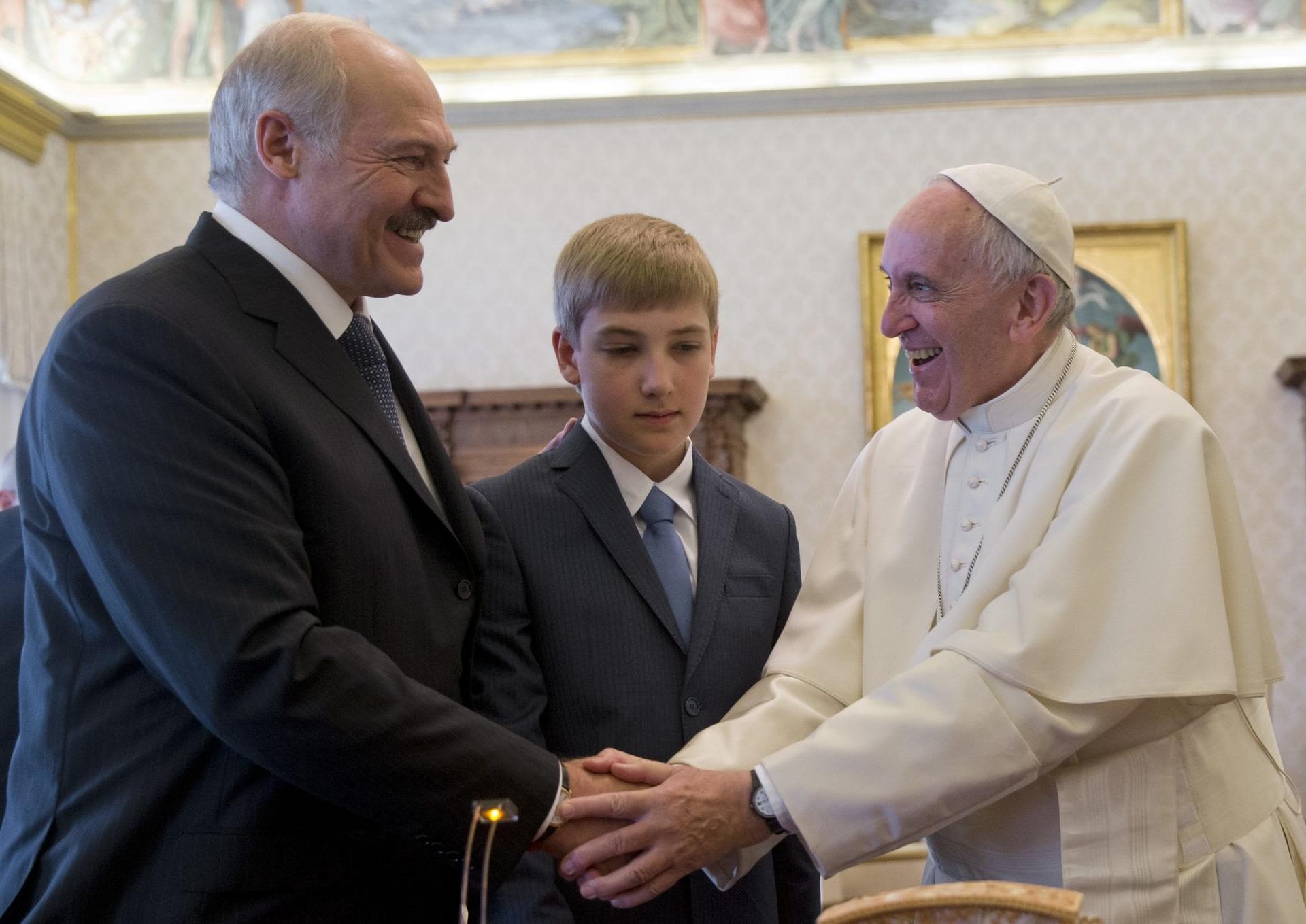ROME – In this Monday’s episode of Crux’s weekly radio show on the Catholic Channel, Sirius XM 129, our managing editor Charles Collins offered a typically brilliant thought exercise. Here it goes:
We already know that over the summer, then-Archbishop Wilton Gregory of Washington, D.C., irked President Donald Trump by publicly criticizing his visit to a Catholic cultural center just after tear gas was used to disperse protestors in front of the White House in the wake of the George Floyd killing so Trump could stage a photo op in front of a church across the street.
Imagine that when Gregory left the country a few months later to come to Rome to get his red hat as a cardinal, Trump had refused to let him back in, so he was forced to live for a spell as an exile. Then imagine it’s announced that Gregory has been given permission to return, and he does, and just a few days later another announcement follows saying the pope has accepted Gregory’s resignation for reasons of age.
(Gregory is actually 73, but for purposes of this exercise, imagine he’s 75, thus the normal retirement age for bishops.)
Absolutely no one would buy this was a routine resignation. The obvious conclusion would be that the Vatican cut a deal with Trump: Let the nettlesome archbishop come back, and we’ll make sure he doesn’t bother you anymore. A firestorm would, naturally, follow.
The point to Collins’ exercise is that while the scenario involving Gregory is fictional, more or less precisely the same thing just happened in reality in Belarus, and the only reason there’s no firestorm yet is because it’s Minsk and not D.C.
This summer, Archbishop Tadeusz Kondrusiewicz, who served with distinction from 1991 to 2007 as the Archbishop of Moscow and later was named as the Archbishop of Minsk, ran afoul of the regime of Belarus President Aleksandr Lukashenko when he stated the obvious out loud, i.e., that there was reason to be skeptical of Lukashenko’s reelection on August 9. Officially Lukashenko won with 80 percent of the vote, but most international observers, including the European Union, found the election to be neither free nor fair and refused to recognize the results.
Kondrusiewicz had told a television interviewer that “there is reason to believe the election was dishonest,” and he also prayed outside a prison holding protestors who had objected to the result. He also issued a statement in which he said, “Our country is living through a difficult moment, which unfortunately already has been marked by the spilling of blood and thousands of arrests of citizens who’ve been brutally beaten for wanting to know the truth about the presidential elections of August 9.”
Thus it was that when Kondrusiewicz left Belarus in September to go to Poland to take part in annual celebrations in honor of the Madonna of Częstochowa and also to attend the First Communion of a relative’s child, Lukashenko denied him permission for reentry. As a result, he was forced to spend the fall living in exile.
In an October interview with Crux, the Vatican’s top diplomat, British Archbishop Paul Gallagher, expressed doubt that Belarus would budge.
RELATED: Vatican ‘not optimistic’ exiled Belarus archbishop will return
“I’m not overly optimistic that they’re going to move on that one,” Gallagher said at the time.
Yet shortly before Christmas, news broke that Kondrusiewicz had been given permission to return to Minsk after a personal appeal to Lukashenko from Pope Francis. He was able to lead the church in Belarus through the Christmas liturgies, using the occasion to issue emotional appeals for unity, reconciliation, and forgiveness.
Then on Sunday, the other shoe dropped: The Vatican announced, without fanfare, that Pope Francis had accepted Kondrusiewicz’s resignation, citing the provision in the Code of Canon Law that refers to submitting one’s resignation at 75. Even at face value the explanation of age isn’t persuasive, given that Kondrusiewicz’s predecessor, Cardinal Kazimierz Świątek, was still in charge to the ripe old age of 96.
Often in Eastern Europe, where the Catholic population is small and the ranks of clergy even smaller, bishops keep going well past the usual retirement age so as not to lift an active priest out of the field.
The most obvious conclusion is that the Vatican, in effect, made a deal with the devil: Allow Kondrusiewicz to return, and we’ll take his job away so that he has no official standing to challenge you anymore.
It’s possible something more was involved – maybe Kondrusiewicz’s health is in decline, maybe he wanted to step away, and maybe there actually was no quid pro quo with Lukashenko. Given the obvious appearance of such an arrangement, however, the Vatican may face pressure to explain what happened, because otherwise it looks a lot like they just rewarded a dictator for doing no more than complying with international law and basic standards of human decency.
Granted, right now American attention is elsewhere, with revelations of a recording of President Donald Trump’s phone call with Georgia Secretary of State Brad Raffensperger, the Georgian run-off elections today and the certification of the Electoral College results tomorrow. The rest of the world really isn’t paying much attention to Belarus either, in part because of the coronavirus and the vaccine rollout.
Nonetheless, sooner or later someone’s going to connect the dots and wonder out loud what’s going on. Vatican officials might be well advised to get their explanations on the record in advance, while they still can.
Follow John Allen on Twitter at @JohnLAllenJr.













